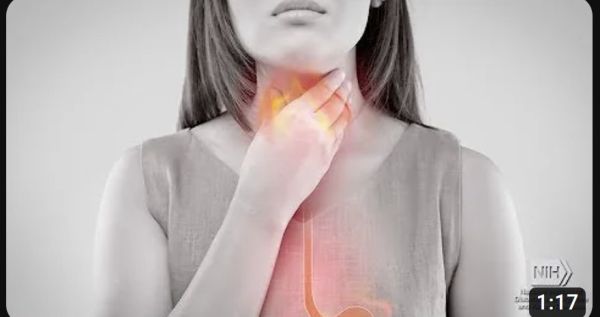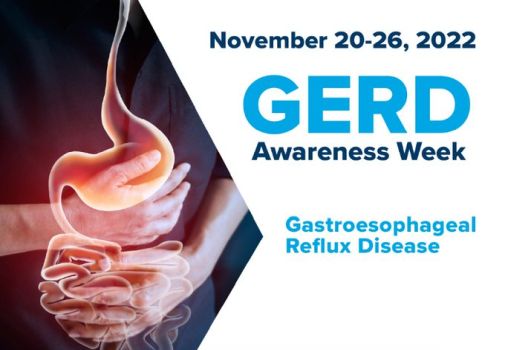
GERD: What is it and how to minimize its troubling effects

GERD Awareness Week takes place November 20th through November 26th, 2022. With Thanksgiving falling during that time, it gives us the opportunity to spread awareness and offer support to people with GERD. This condition is one of the most common gastrointestinal disorders, affecting approximately one-third of the population. People with the disease need to be mindful of what they eat and how they eat due to the many unpleasant symptoms GERD can cause. Let’s gain a better understanding of the disease so that we can offer support to those with it.
What is GERD?
GERD stands for Gastroesophageal Reflux Disease and is a digestive disorder that affects the stomach and the esophagus. People who suffer from GERD can feel left out during the holidays, especially the ones that are celebrated with indulgent feasts.
Normally, the lower esophageal sphincter (LES) opens during digestion to let food into the stomach. Later, it shuts to prevent the reflux of food and stomach acid into the esophagus. When you have GERD, the LES is too weak or abnormally relaxes, causing gastroesophageal reflux, which allows food and liquids from the stomach to enter the esophagus.
The most common symptom of GERD is acid indigestion or heartburn, the burning sensation in the chest. For some, it can be quite painful, and the pressure can last for hours. Other common symptoms of GERD include trouble breathing, a hard time swallowing, nausea, feeling a lump in the throat, and vomiting.
Limiting the Effects of GERD
There are many causes of GERD, including lifestyle issues such as eating trigger foods, drinking alcohol, overeating, and smoking. However, GERD also can occur if you have ulcers, gastritis, or eosinophilic esophagitis. You’re also more at risk for GERD if you’re overweight, obese, pregnant, have a hiatal hernia, or have a weak LES. Treatment for GERD depends on your general health and symptoms. But in more cases, lifestyle changes can limit the effects of GERD, such as avoiding trigger foods, eating small meals and not lying down after a meal.
1. Avoid Trigger Foods: People with GERD can have different food triggers. However, the most commonly identified foods that trigger symptoms of GERD include:
- Alcohol
- Chocolate
- Fried foods
- Fatty foods
- Tomato foods
- Caffeine
- Carbonated drinks
- Citrus fruits and juices
- Peppermint
2. Eat Smaller Meals
Rather than the traditional three meals a day, many people with GERD have found that eating 5-6 smaller meals a day helps ward off symptoms. This strategy helps prevent overloading and overworking the digestive system. It’s also important to eat each meal slowly.
3. Don’t Lie Down After a Meal
Your gastrointestinal system needs gravity to help it function. If you have a weak LES and lie down immediately after eating, stomach contents can reflux into the esophagus. Generally, it’s best to wait two to three hours after eating before you lie down. For this reason, it’s best to schedule your meals, so you’re not eating too close to bedtime.
And, if you are suffering from any any sort of gastro distress, including GERD, make sure to consult your doctor. Learn more about GERD and gastrointestinal health by visiting / contacting Gastro MD.
Sources:
- Dr. Donna Powell | Gastro MD (gastro-md.com), and
- Dr. Renee M. Marchioni Beery | Gastro MD (gastro-md.com)
Posted by Richard Webster, Ace News Today / Follow Richard on Facebook and Twitter






